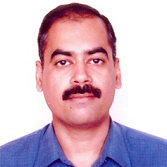International Journal of Computer Network and Information Security (IJCNIS)
IJCNIS Vol. 8, No. 6, 8 Jun. 2016
Cover page and Table of Contents: PDF (size: 430KB)
An Improved Energy Aware Distributed Clustering Protocol for Wireless Sensor Networks
Full Text (PDF, 430KB), PP.29-37
Views: 0 Downloads: 0
Author(s)
Index Terms
Clustering, EADC, Multi-hop routing, Network lifetime, Wireless sensor networks
Abstract
The present work considers energy aware distributed clustering protocol (EADC) which is commonly employed for balancing the energy consumption in non-uniformly deployed sensor networks. In the EADC, residual energy is considered as the primary clustering parameter and the clusters are constructed using uniform competition radius. However in non-uniform node distribution scenarios, more energy imbalance occurs in the network due to variation in intra-cluster energy consumption. For counter balancing it, an inter-cluster energy-efficient multi-hop routing protocol is utilized. In the EADC protocol, cluster heads select the relay node based on residual energy and cluster member count information. But this approach is less efficient in energy balancing. In this paper, an improved energy aware distributed equal clustering protocol is projected. Our scheme considers the relay metric directly in terms of energy expense in relaying the sensed data to the base station taking into account not only the residual energy and member count information but also distance information. It provides better balancing of energy in comparison with the existing approach. Three different scenarios created by varying node distribution are used for evaluating the performance of the proposed protocol and comparison is made with the EADC protocol. The results show that the proposed scheme extends network lifetime in all the scenarios.
Cite This Paper
Vrinda Gupta, Rajoo Pandey, "An Improved Energy Aware Distributed Clustering Protocol for Wireless Sensor Networks", International Journal of Computer Network and Information Security(IJCNIS), Vol.8, No.6, pp.29-37, 2016. DOI:10.5815/ijcnis.2016.06.04
Reference
[1]V. Mhatre, C. Rosenberg, Homogeneous vs. heterogeneous clustered networks: a comparative study, in: Proceedings of IEEE, ICC, vol.6, 2004, pp.3646-3651.
[2]M.H. Awaad, W.A. Jebbar, Extending the WSN lifetime by dividing the network area into a specific zones, Intl. Journal Computer Network and Information Security, 2015, 2, 33-39.
[3]X. Gu, J. Yu, D. Yu, G. Wang, Y. Lv, ECDC: an energy and coverage-aware distributed clustering protocol for wireless sensor networks, Computers and Electrical Engineering 40 (2014) 384 - 398.
[4]S. Bandyopadhyay, E. J. Coyle, An energy efficient hierarchical clustering algorithm for wireless sensor networks, in: IEEE INFOCOM, 2003, 1713-1723.
[5]M. Ye, C. Li, G. Chen, J. Wu, EECS: An energy efficient clustering scheme in wireless sensor networks, IEEE International Conference on Performance, Computing, and Communications, 2005, pp. 535-540.
[6]V. Gupta, R. Pandey, Research on energy balance in hierarchical clustering protocol architecture for WSN, IEEE Intl. Conf. on Parallel, distributed and Grid Computing, 2014, 115-119.
[7]W.B. Heinzelman, A. Chandrakasan, H. Balakrishnan, Energy efficient communication protocol for wireless microsensor networks, in: Proc. 33rd Hawaii Intl Conference on System sciences (HICSS’00), 2000, pp. 8020-8029.
[8]A. F. Liu, W. X. You, C. Z. Gang, G. W. Hua, Research on the energy hole problem based on unequal cluster-radius for wireless sensor networks, Computer Communications 33 (2010) 302-321.
[9]N. Vlajic, D. Xia, Wireless Sensor Networks: To cluster or not to cluster?, in: Proc. of the International Symposium on a World of Wireless, Mobile and Multimedia networks, 2006.
[10]S. H. Kang, T. Nguyen, Distance based Thresholds for cluster head selection in wireless sensor networks, IEEE Communication Letters, 16(9) (2012) 1396-1399.
[11]S. Verma, Prachi, Communication architecture for underwater wireless sensor network, Intl. J. Computer Network and Information Security, 2015, 6, 67-74.
[12]M. Perillo, Z. Cheng, W. Heinzelman, On the problem of unbalanced load distribution in wireless sensor networks, in: Proc. of IEEE GLOBECOM Workshops on Wireless Ad hoc and sensor networks, Dallas, TX, 2004, pp.74-79.
[13]O. Younis, S. Fahmy, HEED: a hybrid, energy-efficient, distributed clustering approach for ad hoc sensor networks, IEEE Trans. Mobile Comput. 3(4) (2004), 366-379.
[14]B. Tavli, Energy-efficient relaying in wireless networks, International Journal Electron. Commun. (AEü) 63 (2009) 695-698.
[15]W.B. Heinzelman, A. Chandrakasan, H. Balakrishnan, An application-specific protocol architecture for wireless microsensor networks, IEEE Transactions on Wireless Communications 1(4) (2002) 660-670.
[16]F. Xiangning, S. Yulin, Improvement on LEACH protocol of wireless sensor network, in: Proceedings of International Conference on Sensor Technologies and Applications (Sensor Comm), Oct.2007, 260-264, doi:10.1109/SENSORCOMM.2007.4394931.
[17]J. Yu, Y. Qi, G.Wang, X. Gu, A cluster-based routing protocol for wireless sensor networks with non-uniform node distribution, International J. of Electronics and Communications (AEü) 66 (2012) 54-61.
[18]J. Yu, Y. Qi, G.Wang, An energy driven unequal clustering protocol for heterogeneous wireless sensor networks, J. Control Theory Appl. 9 (1) (2011) 133-139.
[19]I. Dietrich, F. Dressler, on the lifetime of wireless sensor networks, ACM Transactions on Sensor Networks, 5(1) (2009) 1-38, doi: 10.1145/1464420.1464425.
[20]D. Puccinelli, M. Haenggi, Wireless sensor networks: Applications and challenges of ubiquitous sensing, IEEE Circuits and Systems Magazine, 2005, 19-29.
[21]N.H. Mak, How long is the lifetime of wireless senor network?, in: Proc. IEEE International Conference on Advanced Information Networking and Applications, 2009, 763-770.
[22]X. Wu, G. Chen, S. K. Das, Avoiding energy holes in wireless sensor networks with nonuniform node distribution, IEEE Transactions on Parallel and Distributed Systems 19 (5) (2008) 710-720.
[23]Y.Yang, M. Cardei, Movement-assisted sensor redeployment scheme for network lifetime increase, in: 10th ACM / IEEE Intl. Symposium on Modeling, analysis and simulation of Wireless and Mobile Systems (MSWIM), 2007, pages 13-20, doi:10.1145/1298126. 1298132.
[24]J. Luo and J.P. Hubaux, Joint mobility and routing for lifetime elongation in wireless sensor networks, in: Proc. of IEEE, INFOCOM 2005, pp. 1735-1746.
[25]M. Marta, M. Cardei, Improved sensor network lifetime with multiple mobile sinks 5 (5) (2009) 542 – 555.
[26]H.M. Ammari, S.K. Das, Promoting heterogeneity, mobility, and energy-aware voronoi diagram in wireless sensor networks, IEEE Transactions on Parallel and Distributed Systems 19 (7) (2008) 995-1008.
[27]D.Vass, Z. Vincze, R. Vida and A. Vidacs, Energy efficiency in wireless sensor networks using mobile base station, in EUNICE 2005: Networks and applications towards a ubiquitously connected world, 2005, 173-186.
[28]J. Li, P. Mohapatra, An analytical model on the energy hole problem in many-to-one sensor networks, in: Proc. of IEEE Vehicular Technology Conf., Fall 2005, pp. 2721-2725.
[29]J. Wu, Y. Qi, G. Wang, Q. Guo, X. Gu, An energy aware distributed unequal clustering protocol for wireless sensor networks, International Journal of Distributed Sensor Networks, 2011, doi:10.1155/2011/202145.
[30]J. Li, P. Mohapatra, Analytical modeling and mitigation techniques for the energy hole problem in sensor networks, Pervasive and Mobile Computing 3 (2007) 233-254.
[31]J. Lian, K. Naik, G. Agnew, Data capacity improvement of wireless sensor networks using non-uniform sensor distribution, International J. of Distributed Sensor Networks 2(2) (2006) 121-145.
[32]J. Jia, X. Wu, J. Chen, X. Wang, Exploiting sensor redistribution for eliminating the energy hole problem in mobile sensor networks, Eurasip J. on Wireless Communications and Networking 1 (2012) 1-11.
[33]L.Qing, Q.Zhu, M.Wang, Design of a distributed energy-efficient clustering algorithm for heterogeneous wireless sensor networks, Computer Communications 29 (2006) 2230-2237.
[34]A. F.Liu, W.X. You, C.Z.Gang, G.W. Hua, Research on the energy hole problem based on unequal cluster-radius for wireless sensor networks, Computer Communications 33(2010), 302-321.
[35]H. Shin, S. Moh, H. Chung, M. Kang, Equal-size clustering for irregularly deployed wireless sensor networks, Wireless Personal Communications (2015) 82:995-1012.
[36]T. Agmoth, P.K.Jana, Energy-aware routing algorithm for wireless sensor networks, Computers and Electrical Engineering, 41(2015) 357-367.
[37]M. Sabet, H.R. Naji, A decentralized energy-efficient hierarchical clustering based routing algorithm for wireless sensor networks, International Journal of Electronics and Communications (AEü) 69 (2015) 790-799.

